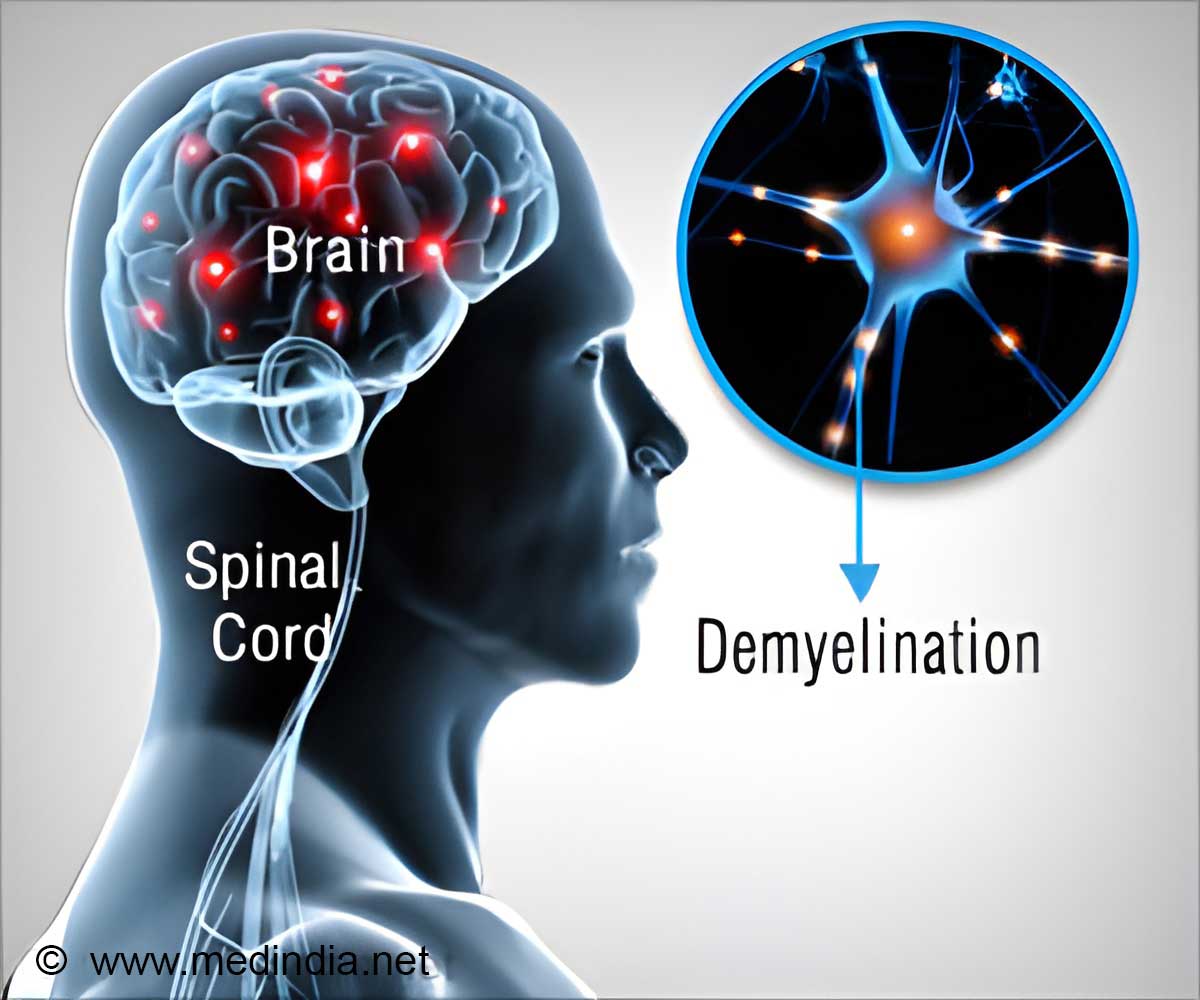Blood clotting factor stops stem cells in the brain from producing myelin, and disrupts myelin repair in nervous system diseases, says study.

‘When fibrinogen, a blood clotting factor leaks into the central nervous system, it stops brain cells from producing myelin and, as a result, prevents repair.’





Much like that bare wire, the nerve fibers in the brain lose their protective coating, called myelin, and become extremely vulnerable. This leaves the nerve cells exposed to their environment and reduces their ability to transmit signals quickly, resulting in impaired cognition, sensation, and movement. In disease, the brain seems to activate mechanisms to repair myelin, but cannot complete the process. For years, scientists have been trying to understand why these repair mechanisms are halted, as overcoming this obstacle holds great potential for treating disabling neurological diseases.
Katerina Akassoglou, PhD, and her research team at the Gladstone Institutes uncovered a promising new therapeutic strategy. Surprisingly, it's associated with a protein in the blood.
They found that when fibrinogen (a blood-clotting protein) leaks into the central nervous system, it stops brain cells from producing myelin and, as a result, prevents repair.
The Culprit Is a Protein in the Blood
Advertisement
In an effort to understand why the brain can't repair itself, scientists have focused on understanding what happens inside the cell. Akassoglou took a different approach.
Akassoglou has spent much of her career studying the role of the blood-brain barrier and fibrinogen in neurological diseases. She previously showed that when blood leaks into the brain, fibrinogen causes inflammation by acting in brain immune cells, which can lead to brain damage.
In the new study, Akassoglou and her team uncovered another, yet unexpected effect of blood leaking into the brain.
"We found that fibrinogen stops adult stem cells from transforming into the mature cells that produce myelin," explained first author of the study Mark Petersen, MD, a visiting scientist in Akassoglou's laboratory and an assistant adjunct professor of pediatrics at UCSF. "This blockade could be harmful for regeneration in the brain."
New Target Could Help Treat Multiple Sclerosis and Other Diseases
The regeneration of myelin in the brain is critical for diseases like MS, stroke, neonatal brain injury, and Alzheimer's disease. Now, the scientific community might get closer to making that happen.
"Repairing myelin by eliminating the toxic effects of vascular damage in the brain is a new frontier in disease therapeutics," said Lennart Mucke, MD, director of the Gladstone Institute of Neurological Disease and professor of neurology at UCSF. "This study could change the way we think about how to repair the brain."
Researchers can now look for new ways to target fibrinogen as a way to restore regenerative functions in the central nervous system. This could lead to novel therapies to help patients with MS and many other diseases associated with myelin.
Source-Eurekalert















